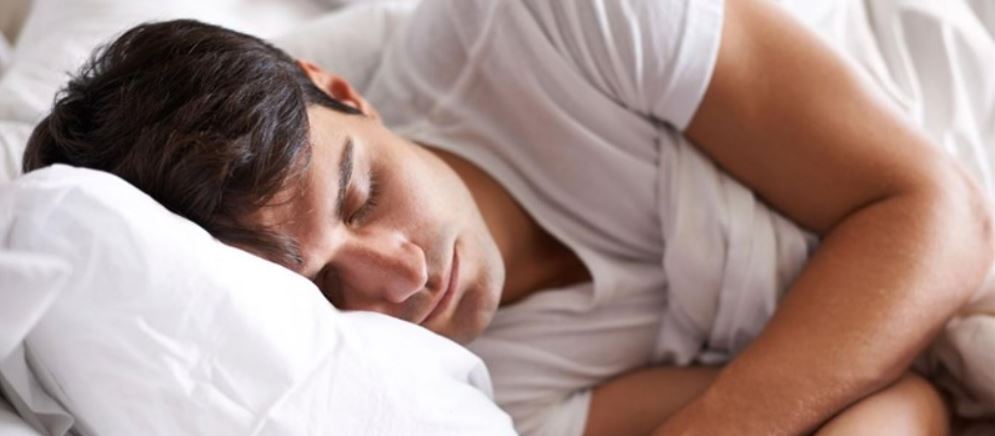You hit your sleep goals for two weeks straight. Eight hours every night. Perfect bedtime routine. You felt amazing. Then life happened. Work deadline. Kids got sick. Netflix dropped a new series. Now it’s 2 AM again and you’re staring at the ceiling wondering how you got here. Sound familiar? Here’s the truth: 93.6% of people report having poor sleep hygiene. The real challenge isn’t learning what to do. It’s doing it for life.
The Long-term Reality of Sleep Hygiene
Let’s cut through the motivational fluff and talk facts. Sleep hygiene isn’t a 30-day challenge. It’s a lifetime commitment.
Dr. Michael Grandner, director of the Sleep and Health Research Program at the University of Arizona, puts it bluntly: “The best treatment for long-term sleep improvement is proper sleep hygiene through behavior and sleep habit modification.” Not pills. Not gadgets. Habits.
But here’s where most guys fail. They treat sleep hygiene like a sprint when it’s actually a marathon. Research shows that sleep hygiene encompasses both environment and habits, and it can pave the way for higher-quality sleep and better overall health. The key word? Consistency.
A landmark study tracked adults for one full year to examine whether sleep hygiene practices are associated with the course of insomnia. The results were eye-opening. Nicotine use, mental ill-health and pain were independently associated with an increased risk for concurrent insomnia. But here’s the kicker: those who maintained good sleep hygiene practices over time showed significantly better outcomes than those who were inconsistent.
The Testosterone Connection: Why Men Can’t Afford Bad Sleep Hygiene
As we’ve discussed in our previous posts about sleep optimization and sleep’s impact on relationships, sleep directly affects your testosterone levels. But long-term? That’s where the real damage happens.
University of Chicago researchers found that daytime testosterone levels were decreased by 10% to 15% in young healthy men who underwent just 1 week of sleep restriction to 5 hours per night. One week. Imagine what years of poor sleep hygiene do to your hormones.
The science is clear: total sleep deprivation (more than or equal to 24 h) reduces male testosterone levels, while short-term partial sleep deprivation has no significant effect on male serum testosterone. Translation? It’s not the occasional all-nighter that kills you. It’s the chronic pattern of poor sleep habits.
Dr. Peter Liu, an expert in sleep and andrology, explains: “When epidemiological and interventional studies are considered collectively, sleep loss and lower sleep duration are associated with lower morning, afternoon and 24-h testosterone.” Your sleep hygiene isn’t just about tonight. It’s about your hormonal health for the next 30 years.
The Science of Habit Maintenance
Here’s what researchers discovered when they studied sleep hygiene programs: knowledge about sleep habits on its own is not translated to improved sleep quality. You can know everything about sleep hygiene and still fail miserably at maintaining it.
A breakthrough study involving adolescents used a four-prong approach: sleep education, self-monitoring of behavior, action planning, and behavioral change strategies. The results? Remarkable efficacy in implementing sleep hygiene practices and improving sleep quality at both 1 month and 6 month follow-ups.
The difference wasn’t what they taught. It was how they taught it. They didn’t just give information. They created a system for lifelong maintenance.
Stanford researchers studying sleep patterns found that good sleep hygiene is a huge commitment: it takes up about a third of the day, every day, and works best when kept on a consistent schedule. The primary short-term symptoms of insufficient sleep can be self-medicated away with caffeine, which is why so many guys think they’re fine when they’re actually slowly destroying their health.
A Biblical Foundation for Rest
Scripture offers timeless wisdom about the importance of sustained rest in our lives. Psalm 127:2 declares, “In vain you rise early and stay up late, toiling for food to eat—for he grants sleep to those he loves.” This isn’t just poetic language; it’s a fundamental truth about how God designed our bodies and minds to function.
The concept of Sabbath rest goes beyond one day a week—it establishes a rhythm of work and rest that sustains us over a lifetime. Ecclesiastes 3:1 reminds us, “There is a time for everything, and a season for every activity under the heavens.” This includes a time for rest that isn’t optional or convenient, but essential.
God modeled this pattern himself. After creating the world, “By the seventh day God had finished the work he had been doing; so on the seventh day he rested from all his work” (Genesis 2:2). If the Creator of the universe built rest into his rhythm, how much more do we need it? When we honor God’s design for rest and sleep, we’re not being lazy—we’re being obedient to the way he created us to thrive long-term.
Take Action: 5 Strategies for Lifelong Sleep Hygiene

1. Build Systems, Not Goals
Stop setting sleep goals like “8 hours every night.” Instead, build systems. Create a bedroom environment that automatically promotes sleep. Set up blackout curtains, maintain a cool temperature (around 65°F), and eliminate noise sources. Make good sleep hygiene the path of least resistance.
2. Anchor Your Sleep Schedule to Fixed Events
Don’t just pick a bedtime and hope for the best. Anchor it to something that doesn’t change. Whether it’s when you walk the dog, when the kids go to bed, or when your favorite evening show ends, connect your sleep routine to existing, stable parts of your life.
3. Create Buffer Zones
Life will disrupt your sleep. Plan for it. Create a 1-hour buffer before your ideal bedtime. If you need to be in bed by 10 PM, start winding down at 9 PM. When emergencies happen (and they will), you still have a chance at decent sleep.
4. Track Leading Indicators, Not Lagging Ones
Don’t just track how many hours you slept. Track the behaviors that lead to good sleep: What time did you stop looking at screens? Did you avoid caffeine after 2 PM? Did you create a wind-down routine? These leading indicators predict your sleep quality better than just measuring the outcome.
5. Plan for Failure and Recovery
You will mess up. Accept it now. The question isn’t whether you’ll have bad sleep weeks. The question is: how quickly can you get back on track? Develop a recovery protocol. When you’ve had three bad nights in a row, what’s your plan to reset? Having a comeback strategy prevents temporary setbacks from becoming permanent patterns.
Try This Today
Pick one sleep hygiene habit you want to maintain for life. Just one. Make it ridiculously small. Maybe it’s putting your phone in another room 30 minutes before bed. Maybe it’s taking five deep breaths when you get under the covers.
Do that one thing tonight. Then do it tomorrow. Don’t add anything else for two weeks. Master the art of consistency with something small before you try to overhaul your entire sleep routine.
Your testosterone levels, your relationships, and your mental health will thank you—not just tomorrow, but for the next 30 years.
The Long Game
Sleep hygiene isn’t sexy. It’s not revolutionary. It’s just a bunch of simple habits done consistently over time. But simple doesn’t mean easy. Easy would be taking a pill. Easy would be buying a gadget.
Maintaining good sleep hygiene for life is hard because it requires you to say no to immediate gratification in favor of long-term health. But that’s exactly what separates men who thrive in their 40s, 50s, and beyond from those who don’t.
Tomorrow, we’ll explore how to develop intuitive eating patterns that support your mental health throughout the changing seasons of life.
Resources
- Mastering Sleep Hygiene: Your Path to Quality Sleep – Sleep Foundation
- Sleep physiology, pathophysiology, and sleep hygiene – PubMed
- Sleep Hygiene Practices and Its Impact on Mental Health and Functional Performance Among Adults – PMC
- Sleep Hygiene Practices: Where to Now? – MDPI
- The Role of Sleep Hygiene in Promoting Public Health: A Review of Empirical Evidence – PMC
- Are sleep hygiene practices related to the incidence, persistence and remission of insomnia? – Journal of Behavioral Medicine
- Effect of 1 Week of Sleep Restriction on Testosterone Levels in Young Healthy Men – PMC
- Effect of partial and total sleep deprivation on serum testosterone in healthy males – ScienceDirect
- Sleep, testosterone and cortisol balance, and ageing men – PMC
- Research Update on Sleep – Stanford Center on Longevity

Leave a Reply